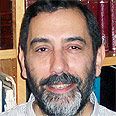–
The Israeli economy is bigger, growing faster, and is generally stronger than had been reported hitherto. That was the good news announced a few days ago by the Central Bureau of Statistics (CBS), the government entity charged with measuring and quantifying all the things that need to be measured and quantified in a modern country, economy and society – which means pretty much everything. In today’s thinking, if you can’t measure it and quantify it then it doesn’t exist for any practical purpose and it’s certainly not important.
Will you offer us a hand? Every gift, regardless of size, fuels our future.
Your critical contribution enables us to maintain our independence from shareholders or wealthy owners, allowing us to keep up reporting without bias. It means we can continue to make Jewish Business News available to everyone.
You can support us for as little as $1 via PayPal at office@jewishbusinessnews.com.
Thank you.
But what if ‘it’ does exist – but you have difficulty in measuring it? Then the troubling implication would be that the data being reported were inaccurate, skewed and basically wrong. Which, by further implication, would mean that the decisions taken on the basis of said data were similarly, uh…wrong. To prevent this highly undesirable state of affairs, in which ‘decision-makers’ are led astray by poor or inaccurate data, the bean-counters – at Israel’s CBS and every parallel institution around the world – are obliged to make every effort to ensure that the reams of facts and numbers and the mountains of data that they collect, analyse and publish are as accurate as they can make them.
They do their best, usually handicapped by budgets that are woefully insufficient for the many and weighty tasks imposed on them. But their biggest professional problem is that the world is not moving in their direction. A generation ago, when economies were in the industrial era and societies were generally homogeneous, collecting data was much easier and the likelihood that what was published was correct was very high. But the move from an industrial to a post-industrial, technology-rich economy and from homogeneous to heterogeneous societies has made the data themselves more problematic, their collection more difficult and their interpretation and use far more hazardous.
In the economic sphere, the rise of the services sector has made statisticians’ lives far more difficult, because measuring the provision even of physical services (think manicures and tax rides) is much more complicated than counting the widgets produced by XYZ Ltd. But the move to trading services electronically has intensified the problems manifold. Yet even these issues pale in comparison to the vastly increased importance of assets that are not only intangible, but effectively unmeasurable. The added value that a famous hairstylist gives to (or at least takes for) what would otherwise be a straightforward ‘product’ is a faint whiff of the wealth created by “human capital”, which is the economists’ term for intelligence, knowledge, creativity, inspiration, etc. Think Apple and then think what Apple might be worth with Steve Jobs and without him.
Then think of the Israeli economy, full of the chutzpadik geniuses responsible for the ‘start-up nation’ myth – and the not insignificant amount of reality underlying the myth. Plainly, the Israeli economy is one of those which has benefited mightily from the move to a brains/ human capital-oriented world, and away from a brawn/ physical capital-oriented world. However, the bean-counters have lagged behind the world around them, because their tools and methodology were not able to measure all the extra wealth being created by the brainy people in their virtual reality. They have been forced to make assumptions, approximations and estimates – and hope they were roughly right.
Of course, they were not – but over time, the ability of statisticians to capture more accurately the new kinds of economic activity and hence their contribution to overall economic growth has improved. It is still not entirely accurate, nor will it ever be, but the profession is in a constant effort to reduce the degree of inaccuracy it suffers from. It periodically updates and improves its tools and when it does so, it changes not only the way it will work henceforth, but also – in the interests of both historical accuracy and continuity – corrects its previously published data. That is the source of the phenomenon in which statisticians, seemingly blithely, ‘rewrite history’. In fact, they are merely adjusting the old data according to new methods and with the help of new tools.
If these tools and methods had been invented here and were being applied solely by the CBS, a highly cynical reaction would be in order. But they are actually global tools, developed and then adopted by the statistics profession – the kind of people who meet at symposia and colloquia held in auditoria and, when asked what they do there, say “we do sa on our ba”.
So it’s basically true: the Israeli economy is bigger, it has grown and is growing faster, and its underlying strength is therefore greater, than had been previously realised. That doesn’t mean all our problems are solved, but it is nonetheless genuinely good news – and should be seen and welcomed as such.
–




